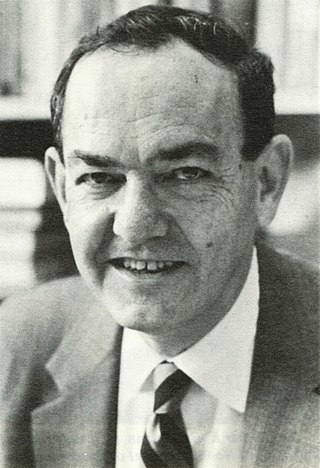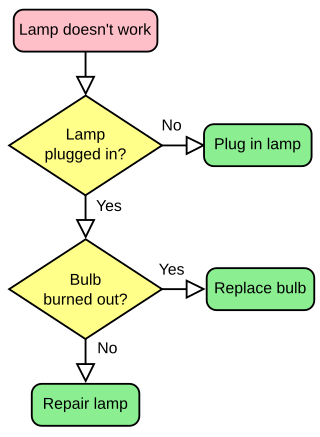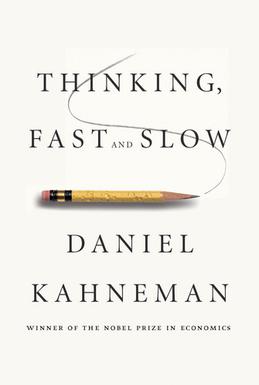
Cognitive science is the interdisciplinary, scientific study of the mind and its processes. It examines the nature, the tasks, and the functions of cognition. Mental faculties of concern to cognitive scientists include perception, memory, attention, reasoning, language, and emotion; to understand these faculties, cognitive scientists borrow from fields such as psychology, artificial intelligence, philosophy, neuroscience, linguistics and anthropology. The typical analysis of cognitive science spans many levels of organization, from learning and decision-making to logic and planning; from neural circuitry to modular brain organization. One of the fundamental concepts of cognitive science is that "thinking can best be understood in terms of representational structures in the mind and computational procedures that operate on those structures."
Cognitive psychology is the scientific study of mental processes such as attention, language use, memory, perception, problem solving, creativity, and reasoning. Cognitive psychology originated in the 1960s in a break from behaviorism, which held from the 1920s to 1950s that unobservable mental processes were outside the realm of empirical science. This break came as researchers in linguistics and cybernetics, as well as applied psychology, used models of mental processing to explain human behavior. Work derived from cognitive psychology was integrated into other branches of psychology and various other modern disciplines like cognitive science, linguistics, and economics.

Herbert Alexander Simon was an American scholar whose work influenced the fields of computer science, economics, and cognitive psychology. His primary research interest was decision-making within organizations and he is best known for the theories of "bounded rationality" and "satisficing". He received the Turing Award in 1975 and the Nobel Memorial Prize in Economic Sciences in 1978. His research was noted for its interdisciplinary nature, spanning the fields of cognitive science, computer science, public administration, management, and political science. He was at Carnegie Mellon University for most of his career, from 1949 to 2001, where he helped found the Carnegie Mellon School of Computer Science, one of the first such departments in the world.
Social psychology is the scientific study of how thoughts, feelings, and behaviors are influenced by the actual, imagined, or implied presence of others. Social psychologists typically explain human behavior as a result of the relationship between mental states and social situations, studying the social conditions under which thoughts, feelings, and behaviors occur, and how these variables influence social interactions.

A cognitive bias is a systematic pattern of deviation from norm or rationality in judgment. Individuals create their own "subjective reality" from their perception of the input. An individual's construction of reality, not the objective input, may dictate their behavior in the world. Thus, cognitive biases may sometimes lead to perceptual distortion, inaccurate judgment, illogical interpretation, and irrationality.
Bounded rationality is the idea that rationality is limited when individuals make decisions, and under these limitations, rational individuals will select a decision that is satisfactory rather than optimal.
In economics and business decision-making, a sunk cost is a cost that has already been incurred and cannot be recovered. Sunk costs are contrasted with prospective costs, which are future costs that may be avoided if action is taken. In other words, a sunk cost is a sum paid in the past that is no longer relevant to decisions about the future. Even though economists argue that sunk costs are no longer relevant to future rational decision-making, people in everyday life often take previous expenditures in situations, such as repairing a car or house, into their future decisions regarding those properties.
Judgement is the evaluation of given circumstances to make a decision. Judgement is also the ability to make considered decisions. The term has at least five distinct uses.
In psychology, a mood is an affective state. In contrast to emotions or feelings, moods are less specific, less intense and less likely to be provoked or instantiated by a particular stimulus or event. Moods are typically described as having either a positive or negative valence. In other words, people usually talk about being in a good mood or a bad mood. There are many different factors that influence mood, and these can lead to positive or negative effects on mood.

In psychology, decision-making is regarded as the cognitive process resulting in the selection of a belief or a course of action among several possible alternative options. It could be either rational or irrational. The decision-making process is a reasoning process based on assumptions of values, preferences and beliefs of the decision-maker. Every decision-making process produces a final choice, which may or may not prompt action.
Moral support is a way of giving support to a person or cause, or to one side in a conflict, without making any contribution beyond the emotional or psychological value of the encouragement by supporting them.
A need is dissatisfaction at a point of time and in a given context. Needs are distinguished from wants. In the case of a need, a deficiency causes a clear adverse outcome: a dysfunction or death. In other words, a need is something required for a safe, stable and healthy life while a want is a desire, wish or aspiration. When needs or wants are backed by purchasing power, they have the potential to become economic demands.
Sympathy is the perception of, understanding of, and reaction to the distress or need of another life form.
In Ancient Greek philosophy, Phronesis is a type of wisdom or intelligence concerned with practical action. It implies both good judgment and excellence of character and habits. Classical works about this topic are still influential today. In Aristotelian ethics, the concept was distinguished from other words for wisdom and intellectual virtues—such as episteme and sophia—because of its practical character. The traditional Latin translation is prudentia, which is the source of the English word "prudence".

Environmental psychology is a branch of psychology that explores the relationship between humans and the external world. It examines the way in which the natural environment and our built environments shape us as individuals. Environmental psychology investigates how humans change the environment and how the environment influences humans' experiences and behaviors. The field defines the term environment broadly, encompassing natural environments, social settings, built environments, learning environments, and informational environments. According to an article on APA Psychnet, environmental psychology is when a person thinks to a plan, travels to a certain place, and follows through with the plan throughout their behavior.
Jonathan Baron is an American psychologist. He is a professor emeritus of psychology at the University of Pennsylvania in the science of decision-making.
Unconscious thought theory (UTT) posits that the unconscious mind is capable of performing tasks outside of one's awareness, and that unconscious thought (UT) is better at solving complex tasks, where many variables are considered, than conscious thought (CT), but is outperformed by conscious thought in tasks with fewer variables. It was proposed by Ap Dijksterhuis and Loran Nordgren in 2006.
Moral development focuses on the emergence, change, and understanding of morality from infancy through adulthood. The theory states that morality develops across the lifespan in a variety of ways. Morality is influenced by an individual's experiences, behavior, and when they are faced with moral issues through different periods of physical and cognitive development. Morality concerns an individual's reforming sense of what is right and wrong; it is for this reason that young children have different moral judgment and character than that of a grown adult. Morality in itself is often a synonym for "rightness" or "goodness." It also refers to a specific code of conduct that is derived from one's culture, religion, or personal philosophy that guides one's actions, behaviors, and thoughts.

Thinking, Fast and Slow is a 2011 popular science book by psychologist Daniel Kahneman. The book's main thesis is a differentiation between two modes of thought: "System 1" is fast, instinctive and emotional; "System 2" is slower, more deliberative, and more logical.





